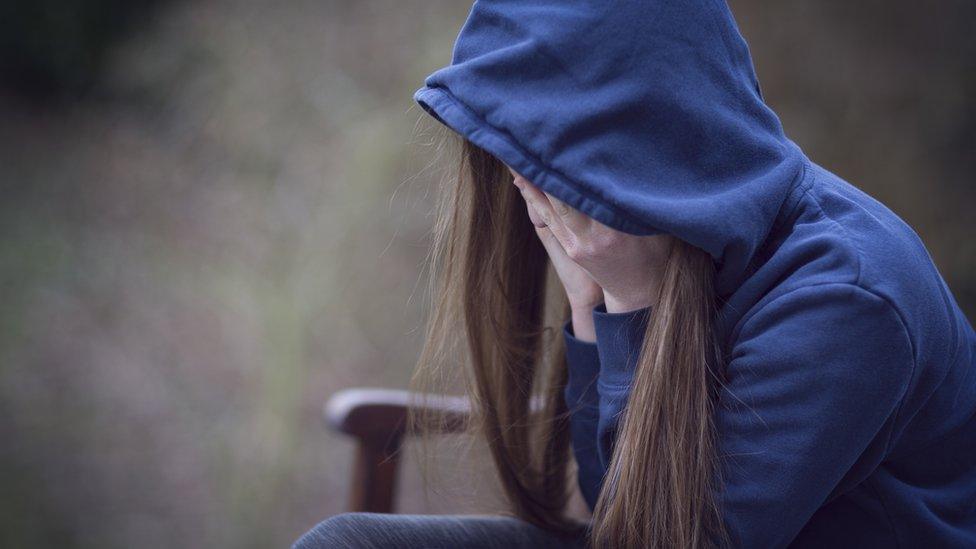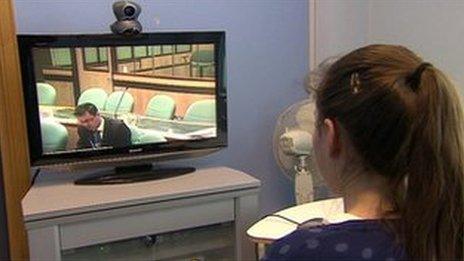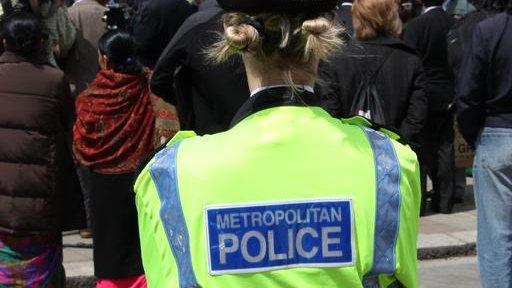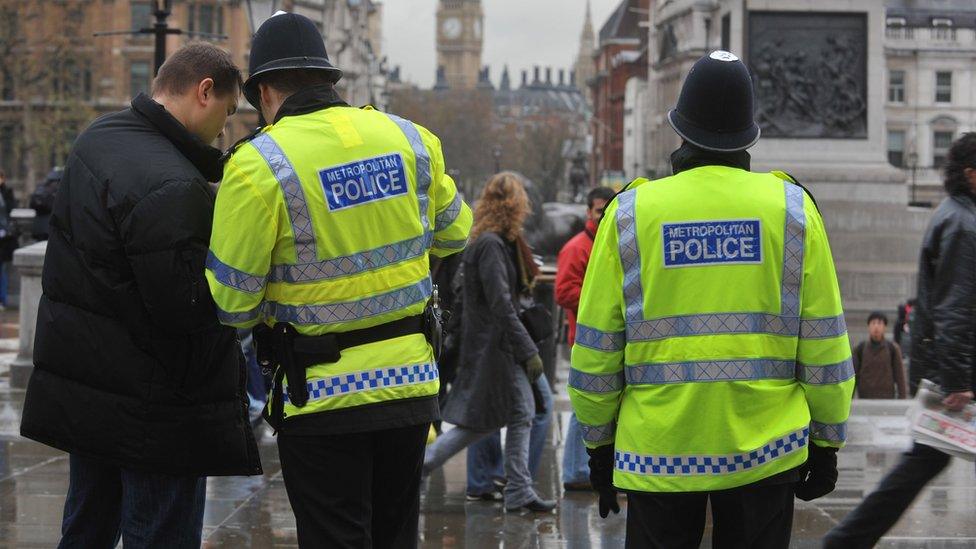Vulnerable victims to give pre-recorded evidence to trials
- Published

The decision to pre-record evidence is made by judges on a case-by-case basis
Children and other vulnerable victims of crime can pre-record evidence to avoid attending court from today.
All crown courts in London and Kent will have the new protections, others across the country will follow suit by the end of the year.
Justice Minister Alex Chalk said it would spare vulnerable witnesses and victims the "trauma" of a trial.
He added that the new technology "would not reduce a defendant's right to a fair trial".
Crown Courts in Basildon and Chelmsford in Essex, Lewes in East Sussex and Stafford in the West Midlands will also be included in Monday's rollout.
The move follows successful pilots in Liverpool, Leeds, and in Kingston-upon-Thames, where in November a Primark security guard was jailed after the four girls he sexually assaulted gave their evidence via pre-recordings.
The victims felt less pressure than attending court, according to the Ministry of Justice.
'Beset with worry'
Evidence, the ministry said, is video-recorded as close to the time of the alleged offence as possible, to help memory recall.
It then gets played during the trial, so witnesses or victims can remain away from the courtroom.
Victims' Commissioner Dame Vera Baird said: "I have been concerned that children who complained of victimisation should not spend a long part of their childhood beset with the worry of ultimately giving an account of what happened.
"If they can give their evidence at an early stage, they will then be free to get on with their lives.
"There is also a further point that therapy is often delayed whilst a complainant is a witness."
The decision to pre-record evidence is made by judges on a case-by-case basis.
Mr Chalk added: "Vulnerable victims show great courage by coming forward, and it's vital they can do so in the least traumatic way possible."
- Published28 April 2014

- Published10 May 2013

- Published26 August 2017
